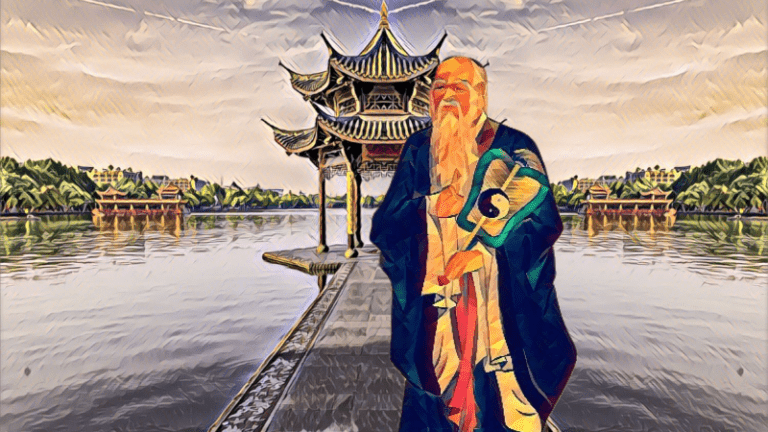Alan Watts explains: Don't take life too seriously
Don't take life too seriously. Most people have probably heard this phrase. It is extremely widespread and even the philosopher Alan Watts had used it. But what exactly did he mean by it?
Alan Watts tried to mediate between Eastern and Western philosophy, so it is not surprising that his approach to "not taking life too seriously" had a strong connection to Hinduism and Buddhism, among other things.
Alan Watts cautions not to take life too seriously. As an example, he cites the Hindu teaching that life is just a game, called lila (Sanskrit: लीला līlā). He also points out that every successful culture allows dropouts who remind us not to take everything too seriously.
The whole thing may sound very abstract and possibly meet with rejection. Also many people feel this almost as an attack, because they have the feeling that one denies them their relevance on this world. However, Alan Watts explains in various works that it is not to be understood as discouragement but as relief. Also the life would not lose by this fact at meaning, but would shift only the perspective on this somewhat.
Here is a short video, of a talk by Alan Watts on this topic. I recommend you watch it before we get into exactly what he meant by it (if you don't understand English just skip the video):
Meaningful translation
Let us now take a closer look at the monologue. I have taken the liberty of adding some comments to it in order to explain deeper meanings and also references a little more closely:
„The only thing that could be bad is taking it too seriously.
In other words, if you accept the basic idea that the whole universe - all its forms, all the forms of biology, all the different species: the giraffes, the rhinos, the baboons, the roses, the eucalyptus trees, everything - is a form of biological play.
Watts kept mentioning that we should see life as a playful act, where playing is the real goal, rather than as a dreadful task where we focus only on a possible future outcome that we may or may not achieve. One of his favorite analogies was that life is like a dance where we are not aiming at a specific point in space, but are aware that the purpose of the dance is simply to dance:
It's a dancing thing that goes on in different styles, and we wouldn't go to any of these things „Youshould not happen" say, because they are all the great, Maya - the great illusion, the great game.
In Hinduism, the concept of Maya means that we humans are trapped in an illusion where our ego prevents us from seeing the truth. Alan Watts points out that being trapped in this illusion is not necessarily a bad thing, but that it can also be fulfilling to participate in it. Things like relationships, family, and materialistic possessions can be the meaning while playing the great game of life.
He further underlines this with the following examples:
And so the palace, the human community, is organized with division of labor, with classes, with all the complications of economics and banking and transportation and so on and so forth. All of this is a special kind of game.
And every form of it is just as legitimate as, for example, different kinds of dancing: a waltz, a rumba, the foxtrot, the frog. All of them are perfectly legitimate forms of dancing.
So the universe does that.
But the most important thing is to understand what the sannyasin, the shramana, the man who goes out of the bucket, says, "Please people who are in the bucket, I, my existence reminds you that you are just playing.„
Do not take it too seriously, because if you take it too seriously, you will start destroying and fighting each other. This city against that city, this country against that country, and so on. Because you are too involved. That's why any reasonable society allows a certain number of people to deviate. Monks, a kind of outsiders and say: „You don't have to play the game. You don't have to play the game."
Such "dropouts" from society exist in pretty much every culture. In Hinduism, they are Vanaprastha - forest dwellers. Disengaging from materialistic possessions is part of their outlook on life (the next step, where you completely withdraw from the outside world, is to become a sannyasin. In other cultures, such dropouts are found as monks, hermits, or generally as social misfits.

A society that is insane and insecure cannot allow this. It says, "Everyone must participate. Everyone must work. Everyone must belong.„
And then the freedom disappears because, in fact, there's a lot of fear when you say, "Well, you don't have to go. There are conditions under which you can get out." Then a lot of people get together and say, "Well, what would happen if everybody got out?"
This fear that Alan Watts described may be what first comes to your mind
I ask, "What would happen if everyone decided to take American Airlines Flight 3 to New York tomorrow?" Well, they just wouldn't get on it. I mean, and they won't anyway, because a lot of people aren't interested. aren't willing to stop.
This does not mean that they are inferior. The acorn is not inferior to the oak. It is a potential oak, but as an acorn it is just as beautiful and lovely as a full-grown oak. Just as a baby is just as beautiful as an adult - sometimes even more beautiful.
So man who is in the beginning stage of evolution is just as wonderful as a man in the high stage of evolution. He is just as much a manifestation of the divine dance. So if a society allows a certain number of people to retire, it should not be afraid that everyone will want to retire, because some people are absolutely fascinated by competition, by participating, by playing.
They should. It's fine for them. But we are seeing a lot of motivation for withdrawal in the United States today. It's simply because we didn't provide for it. We haven't... There's no way for a Protestant to become a monk or a Jew. The Catholics have only half-heartedly provided for these kinds of things.
AAnd there have to be people who are outside the game and don't identify with a class, with a name, with an ego, with a persona, with a role.„
It becomes clear that Alan Watts places great value on the possibility of becoming an outsider to society. He makes it clear that, in his opinion, this possibility is what keeps people sane.
Own thoughts
Like many people, this view also unsettled me at the beginning and also angered me a little bit. It seemed audacious to me to say that there is no deeper meaning in life. But that subsided relatively quickly when I looked more closely at all of Watt's approaches from Far Eastern philosophies, because he makes it clear in many places that these are just thought games and possible attempts at explanation. Not forcing or intrusive, but somehow plausible.
Watts went on to explain that it's perfectly fine to have goals. It's just that we have the privilege of being reminded again and again that we don't have to take things too seriously.
In my opinion, in philosophy it is generally important not to accept everything as absolute truth, but rather to be open to ideas and concepts, then to probe what input you want to and can integrate or reject into your worldview.
It is better not to do either one or the other lightly. But it's not bad if you do. And changing and adding to one's views is also perfectly fine (and, in fact, perfectly normal). Stubbornly insisting on old perspectives that one has acquired at some point seems to me to make little sense and is an invitation to discord and bitterness.
If you liked this article, you can find more. For example:
- Alan Watts' version of the Chinese farmer history
- Alan Watts about the meaninglessness of life and Wu Wei
Did you like this article? You can let us inform you about new articles:







